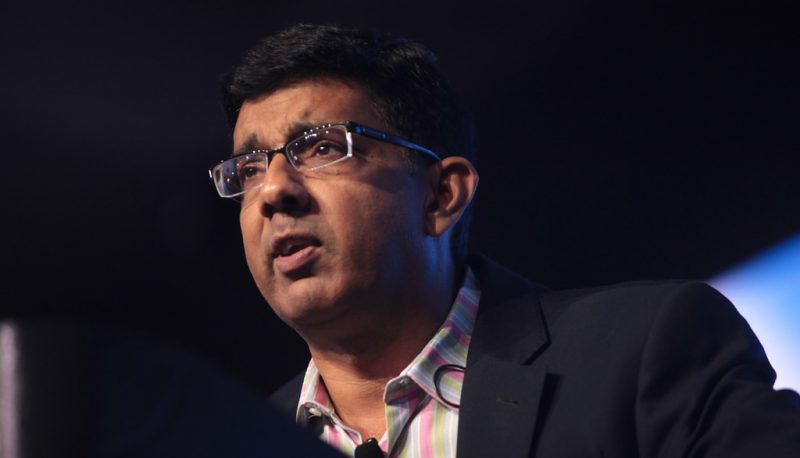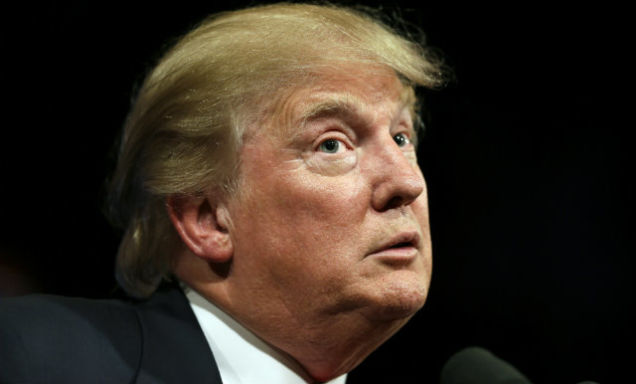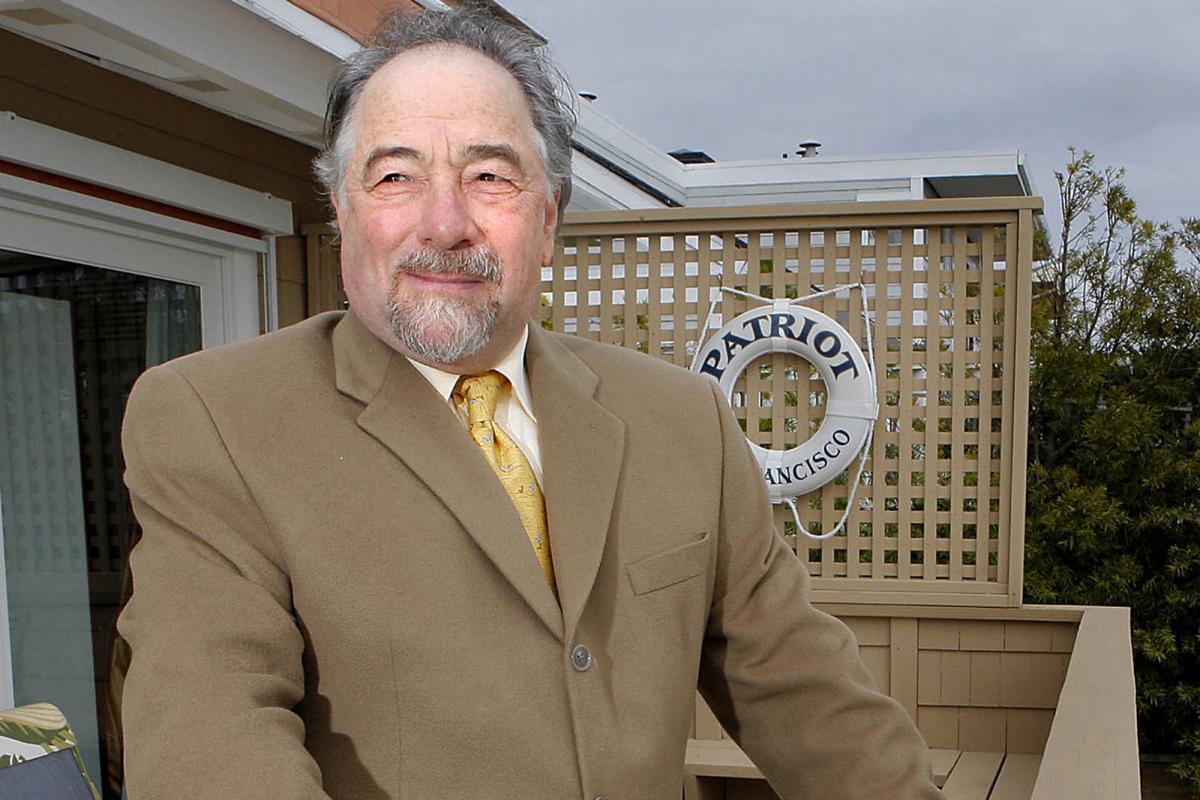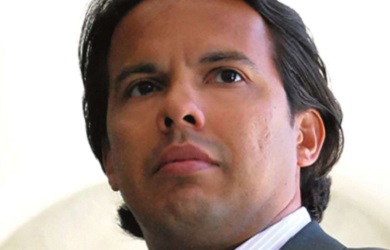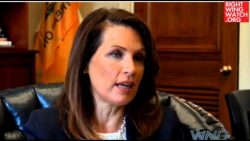President Trump’s decision to pardon Dinesh D’Souza—and the right-wing celebrations–should come as no surprise, as D’Souza is “the perfect propagandist for Trump’s America.” Indeed, well before Trump entered the presidential race, D’Souza helped dig and fill the deep well of paranoia and resentment that Trump tapped as a candidate and continues to wallow in as president. It also signals to right-wing activists, and perhaps to certain former colleagues, his willingness to use his pardon power to reward his political allies.
Last year, D’Souza promoted his latest book “The Big Lie: Exposing the Nazi roots of the American left,” with pictures taken with Steve Bannon and Sebastian Gorka at the White House. In it, he compares Democrats with Nazis; he made similar charges last year about activists working for the removal of statues celebrating Confederate leaders.
D’Souza spent years relentlessly attacking Barack Obama, who he said had a “pathological hatred for traditional Christianity,” believed that America is “exceptionally evil,” and viewed “Muslim jihadists” as “freedom fighters.” D’Souza has charged that “so-called liberals coddle this Islamic radicalism.” He appeared on anti-Muslim activist Frank Gaffney’s radio show in 2016 to denounce Obama for promoting an “un-American project.”
D’Souza has also argued that progressive policies are forms of theft, declaring, “It does not promote the common good for the state to insist that successful people pay other people’s medical bills.”
Before being charged with violating federal campaign finance laws—he plead guilty in 2014—D’Souza had already made a transition from right-wing funded “scholar” to full-on propagandist who churned out books and movies attacking “the left” and promoting a revisionist history of America in which slaves were treated “pretty well.” Since then, he has portrayed his conviction—which he insists was unfair political prosecution—as more evidence of the tyranny of the left. And he has boosted his sales by portraying himself as the victim of left-wing conspiracies to silence him by, among others, Costco and Google.
In 2007, D’Souza published the abominable “The Enemy at Home: The Cultural Left and Its Responsibility for 9/11.” Criticism of the book was so intense that D’Souza took to the pages of The Washington Post to defend himself and declare “I am not … an unqualified right-wing hack.” D’Souza said in an interview at the time that Osama bin Laden had a point about America being “an atheist and a pagan society that is inflicting its values on the world.”
D’Souza began turning his books into movies both to make money and to try to make history. And, as Alex Nichols noted last year, he shifted gears a bit from dismissing the sins of America’s past to highlighting them and placing blame for them on the Democratic Party, saying the ideology of today’s party is the same as that of its pre-Civil-Rights era incarnation. For example, D’Souza portrays Democratic support for social safety net programs as a shift “from slavery to enslavement,” because progressivism is really about “social engineering and social control.”
D’Souza tried to prevent Obama’s re-election with his 2012 movie “2016: Obama’s America,” which was based on his ludicrous book, “The Roots of Obama’s Rage.” After failing at that objective, he set out to prevent Hillary Clinton from being elected president.
He described his 2016 film “Hillary’s America: The Secret History of the Democratic Party” as “a weapon” and bragged to Religious Right activists at that year’s Road to Majority conference that he would “drop this grenade in the middle of the Democratic convention.”
Clinton was also a target of D’Souza’s 2014 movie, “America: Imagine the World Without Her,” which set out to refute progressive “indictments against America: We stole the country from the Native Americans, we stole the labor of the African Americans, we took half of Mexico in the Mexican War. Today our foreign policy and free market system are forms of theft.” D’Souza described slavery as part of a universal “conquest ethic” and said “what’s uniquely America is the fighting of a great war to end it.” The movie ignored Jim Crow’s decades of violently enforced racial apartheid.
In the book version of “America,” D’Souza said it was “unwise and unnecessary” for the Civil Rights Act of 1964 to outlaw discrimination by private businesses. While promoting the movie, he charged that teaching students about things like the founding fathers owning slaves was “teaching our young people to hate America.” D’Souza said in the book that racism isn’t holding people back in America. “The reason blacks remain so far behind whites, however, has very little to do with racism,” he wrote. “It has to do with African American cultural backwardness.”
D’Souza’s promotion of right-wing conspiracy theories and historical revisionism have made him fans across the right-wing. When he was charged with a campaign finance violation, Glenn Beck called him “a political prisoner” and Alex Jones described his prosecution as part of the Obama administration’s “reign of terror.”
Among right-wing figures cheering loudly for Trump’s decision to pardon D’Souza is a gleeful Sen. Ted Cruz, whose father officiated at D’Souza’s second wedding, an example of the right’s flexibility in applying moral absolutes to leaders of their own movement. In 2012, D’Souza slammed Obama for “attacking the traditional values agenda” shortly before a scandal broke in which he reportedly shared a hotel room with a woman other than his wife and became engaged to his then-girlfriend while he was still married. In the midst of the scandal, D’Souza stepped down as president of King’s College, which is dedicated to advancing a “biblical worldview.”





